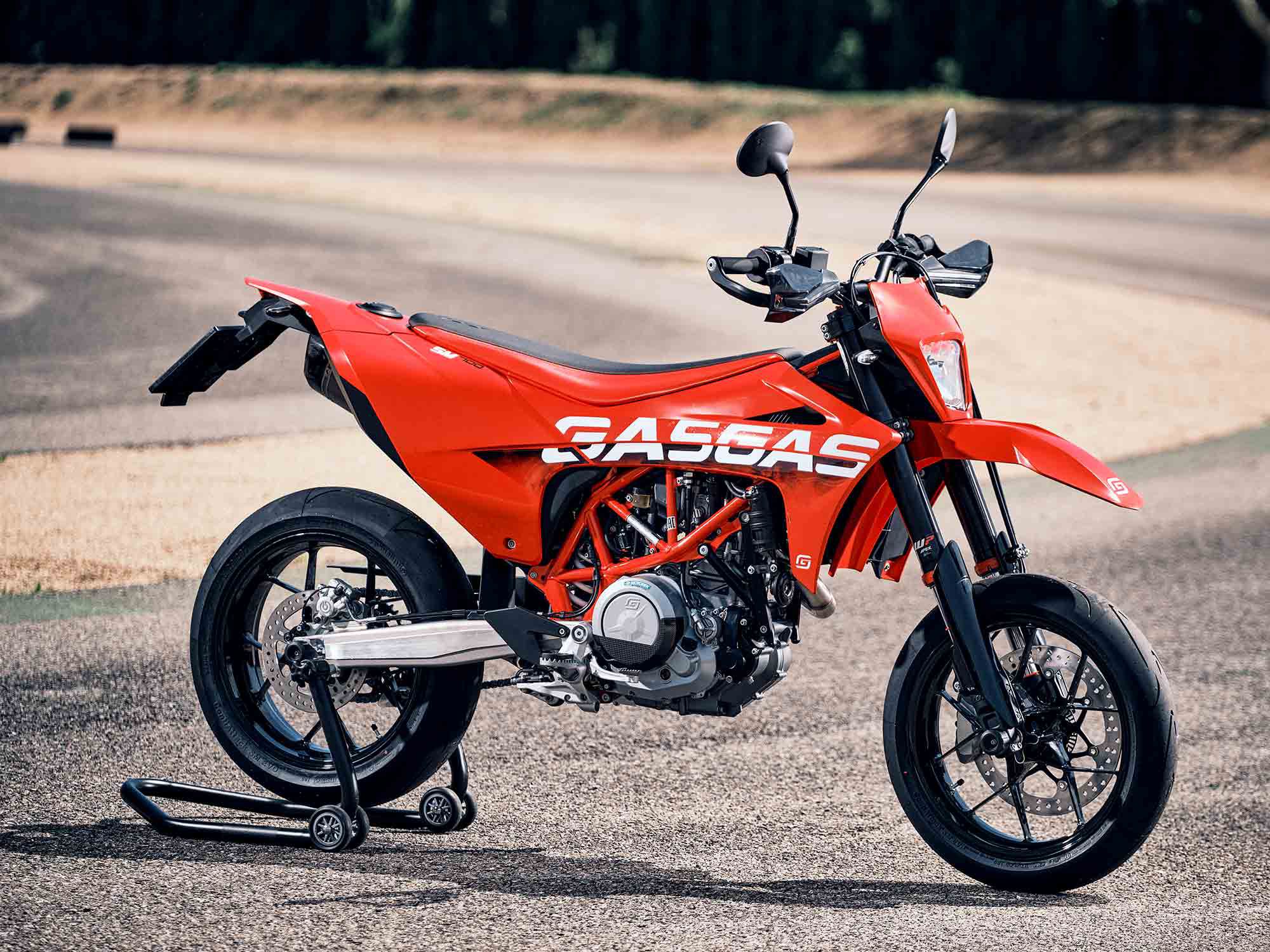
GasGas set out to reinvent its brand in 2020, breaking out from the niche trials-bike market to contest the Moto3 championship. That audacious move was quickly followed by success at the famous Dakar Rally last January. And this spring, the factory raised its profile further by badging Jake Dixon’s Moto2 Triumph-powered Kalex as a GasGas. Now GasGas launches its first production streetbike, the SM 700.
The catalyst behind the transformation of the Spanish manufacturer is parent company Pierer Mobility, which also owns KTM and Husqvarna, two established off-road marques now forging new futures in the road sector. That means no prizes for working out that the “new” SM 700 supermoto shares just about everything with the KTM 690 SMC R and Husqvarna 701. In fact, the 693cc 74 hp single-cylinder engine is identical, as is the fully adjustable WP suspension and trellis frame. Only its cast wheels and dramatic red paintwork separate it from its hooligan siblings.
Opting to venture into the road market with a supermoto certainly makes sense, especially so given that the supermoto scene emerged out of dirt riding. But the aggressive characteristics of bikes in the class aren’t for everyone, and their popularity has waned since the golden supermoto days of the mid-1990s.
Single-cylinder engines, light, slim, and ideal for twisty supermoto tracks, are unfashionable as well these days. But the KTM-developed LC4 is a sophisticated and versatile motor. It weighs just 78.3 pounds, including the electric start, throttle body, clutch, and coolant lines, and is supported by two riding modes, Street and Supermoto, which are refreshingly simple to use. An up-and-down quickshifter comes as standard, along with that must-have on all supermoto machines, a slipper clutch; on the GasGas, it’s hydraulically operated.
Below 2,500 rpm, especially in the higher gears, it’s a little lumpy. But tap back on the quickshifter and it will pull cleanly. Short-shifting through the torque of the midrange is a satisfying experience, allowing you to make quick progress on the road. Fueling is precise and smooth, another massive step forward from the single-cylinder bikes of times gone, and while vibrations are noticeable they are anything but intrusive at 70 mph cruising speeds.
But the real difference between this and older singles is that you can also thrash the GasGas and have some serious fun. On the track you can hold onto a gear for longer than you’d expect, occasionally bouncing it off the rev limiter between corners, and the GasGas loves it. Tuck down behind its wide supermoto bars and it will breeze past an indicated 100 mph and onward to 110 mph.
Yes, 324 pounds (dry) plus 74 hp and 54.2 pound-feet should equal some serious fun. Add fully adjustable WP suspension and Continental Attack SM rubber on 17-inch wheels, and clearly it’s time to find a racetrack. Preferably a tight one.
There are three ways to ride this thing. Conventionally, sitting still on the racy seat and using the single’s pleasing dollops of torque, which feels a bit lazy on a bike this intense but is a great way to revel in its chassis’ responsiveness. Traditionally, supermoto style, with weight forward, inside leg out, braking later than late, sliding the rear to the apex as you push the bike down into the corner before turning and firing out. Or knee down, as if on a normal sportbike at a trackday, with your weight off the inside of the bike, knee skimming the curb before pushing the bike upright on the exit.
The GasGas loves all three. Ride conventionally on the road, then get to the track or even a fast switchback mountain pass and hit it supermoto style or knee down. It steers so quickly, and is so lacking in mass and bulk compared to normal bikes, that it takes a period of adjustment to get fully onto its wavelength. Those wide bars work like long levers and make the steering super light. They’re aided, in all probability, by the SM’s cast wheels, which are fractionally lighter than the spoked rims on the KTM and Husqvarna, two bikes that hardly steer like a pair of raked-out cruisers.
The SM 700 is also beautifully set up. On the racetrack there was no need to adjust the fully adjustable WP suspension, or even drop the tire pressures; just roll into turn one and have fun. A twisty track is where the GasGas truly shines, and unlike a 200 hp superbike, the bike is brilliant at relatively low speeds. You’re not wrestling 400 pounds, just riding a bike that wants to get you into and out of the next corner as quickly as possible. And after a 20-minute track session, instead of feeling drained, you’re keen for another fun session.
This was my first time on the Continental Attack SM tires, which were faultless on the road and track. Even when the pegs started to tickle the surface, I still felt confident in the grip and feel. And while the SM 700 generates superb mechanical grip, there are also excellent rider aids to fall back on. Traction control and ABS are both lean-sensitive in the Street mode. In Supermoto mode the TC will allow a small slide and the ABS is active on the front wheel only. Use the bike’s torque, get on the power incredibly early, and the chassis and traction control find grip and propel you forward; you dart away from the apex like a greyhound after a rabbit.
Braking is looked after by a huge 320mm disc and Brembo four-piston Monoblock caliper, which do the job nicely and are supported by the Bosch cornering ABS system, a vital part of the package given that we’re not all supermoto experts. The added safety of the corning ABS gives you the confidence to brake hard and deep to the apex, while selecting Supermoto mode disengages the rear and allows you to drift into corners, or just pull big skids while pretending to look good. Away from the track, the stoppers have a lovely feel and an adjustable lever. Again, the lean-sensitive ABS will come in useful in mixed conditions, and when carving up city traffic, which the GasGas will do all too easily.
There is a practical side to the SM 700. Service intervals are every 6,000 miles. Fuel consumption should be good, with GasGas quoting 4.1 liters/100km, or 57.4 mpg, which from the 3.6-gallon fuel tank (filled from the rear) will give a theoretical range of 206 miles. That’s over 150 miles before you’ll need to search for fuel. And, frankly, after 120 miles or close to two hours in the thin saddle, you’ll want a break.
Verdict
Like its KTM sibling, the GasGas SM 700 is a well-judged balance of aggression and rideability for both track and road, supported by easy-to-use rider aids. The elephant in the room is the fact that it is essentially a KTM 690 SMC R in red with unique styling and cast wheels, which don’t make a huge difference to anything except looks. But copying the KTM makes sense. It has the best, most powerful single-cylinder engine on the market, brilliant handling, and a suite of usable rider aids that make supermoto riding more accessible to normal motorcyclists. It’s logical to just add your own design twist, logo, and culture.
This is an ideal second bike, albeit a pricey one, to have in the back of the garage for when you simply want to have fun, and for that reason I love it. And dare I say I prefer red over orange.
2022 GasGas SM 700 Specifications
| PRICE | $TBD |
| ENGINE | 693cc, liquid-cooled single; 4 valves |
| BORE x STROKE | 105.0 x 80.0mm |
| COMPRESSION RATIO | 12.7:1 |
| FUEL DELIVERY | Fuel injection w/ 50mm throttle body, ride-by-wire |
| CLUTCH | APTC slipper clutch, hydraulically actuated |
| TRANSMISSION/FINAL DRIVE | 6-speed/chain |
| FRAME | Steel trellis |
| FRONT SUSPENSION | 48mm WP Apex, fully adjustable; 8.5 in. travel |
| REAR SUSPENSION | WP Apex, fully adjustable; 9.4 in. travel |
| FRONT BRAKES | 4-piston Brembo calipers, 320mm discs w/ ABS |
| REAR BRAKE | 1-piston Brembo caliper, 240mm disc w/ ABS |
| WHEELS, FRONT/REAR | Cast; 17 x 3.5 in. / 17 x 5 in. |
| TIRES, FRONT/REAR | Continental Attack SM; 120/70-17 / 160/60-17 |
| RAKE/TRAIL | 26.1°/4.3 in. |
| WHEELBASE | 57.9 in. |
| SEAT HEIGHT | 35.4 in. |
| FUEL CAPACITY | 3.6 gal. |
| DRY WEIGHT | 324 lb. |
| WARRANTY | 24 months, limited |
| CONTACT | gasgas.com |
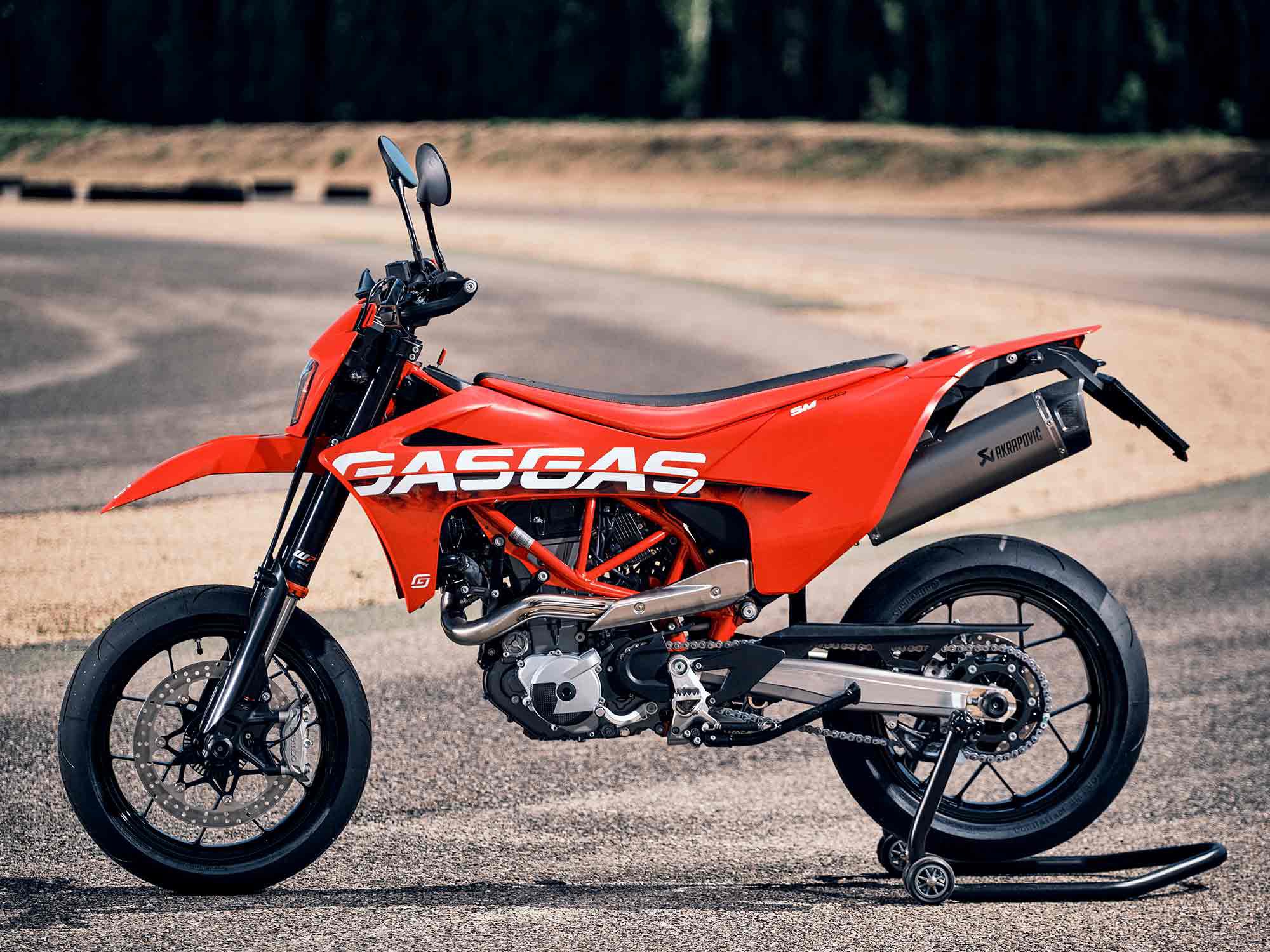
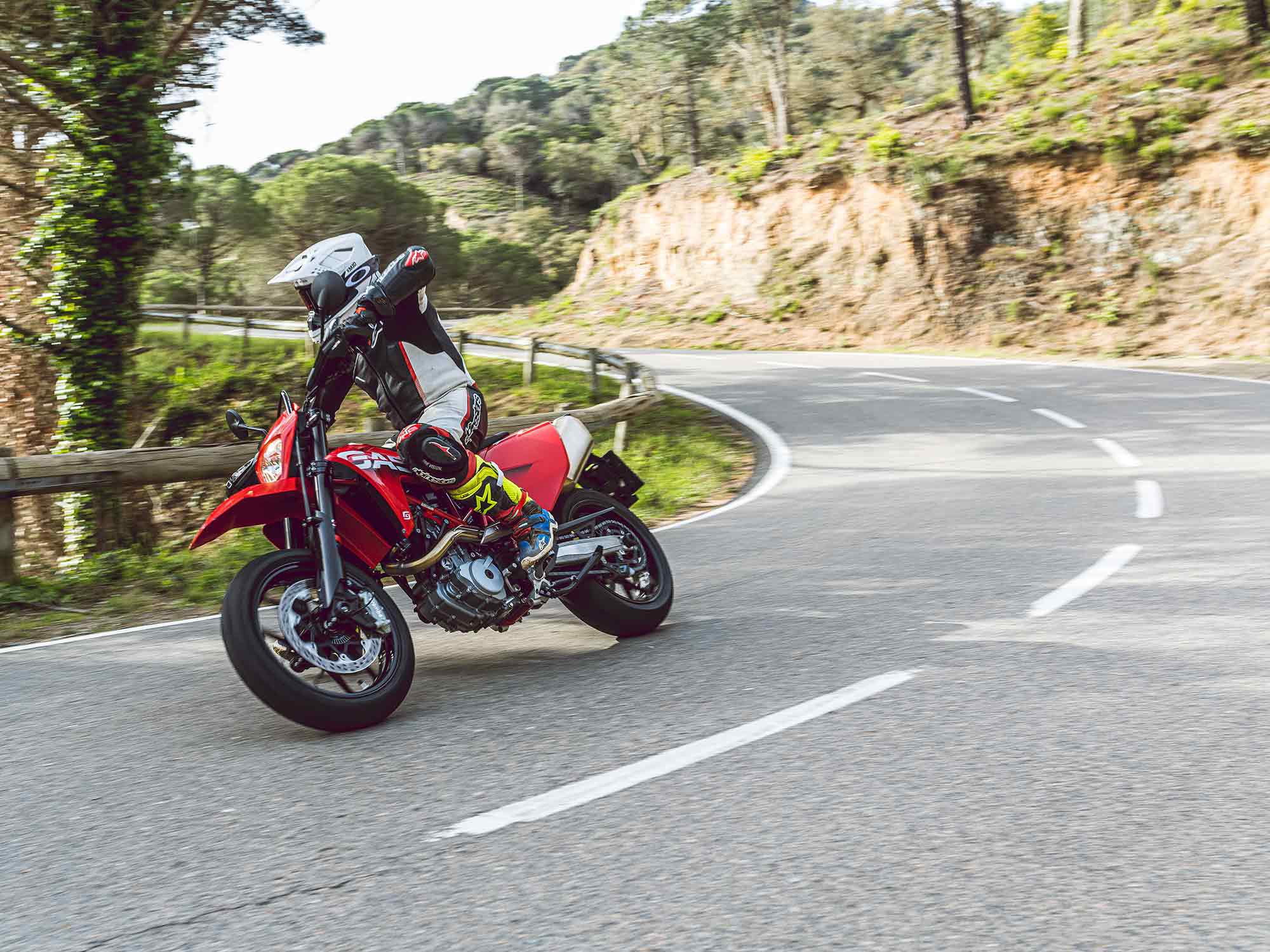
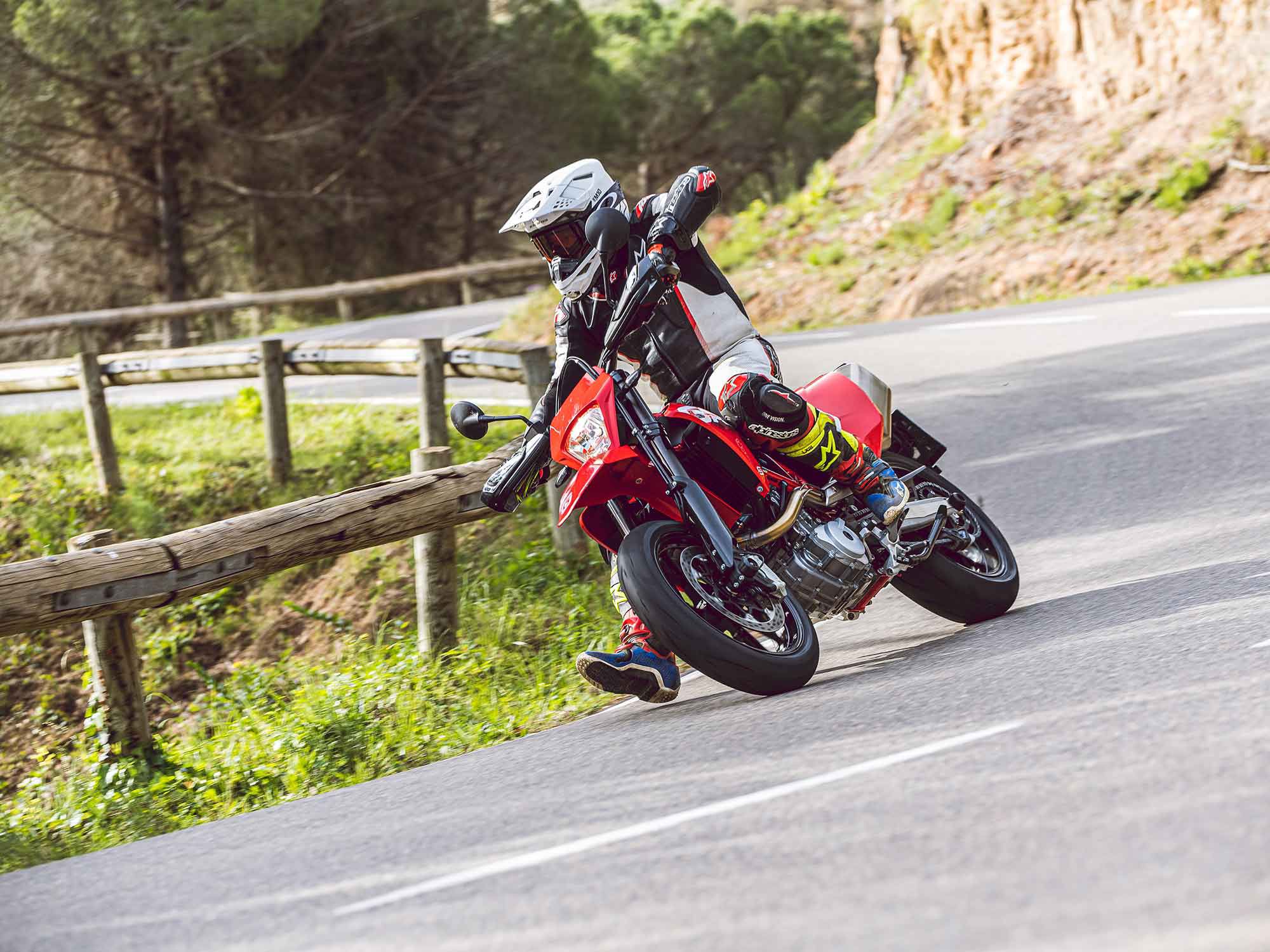
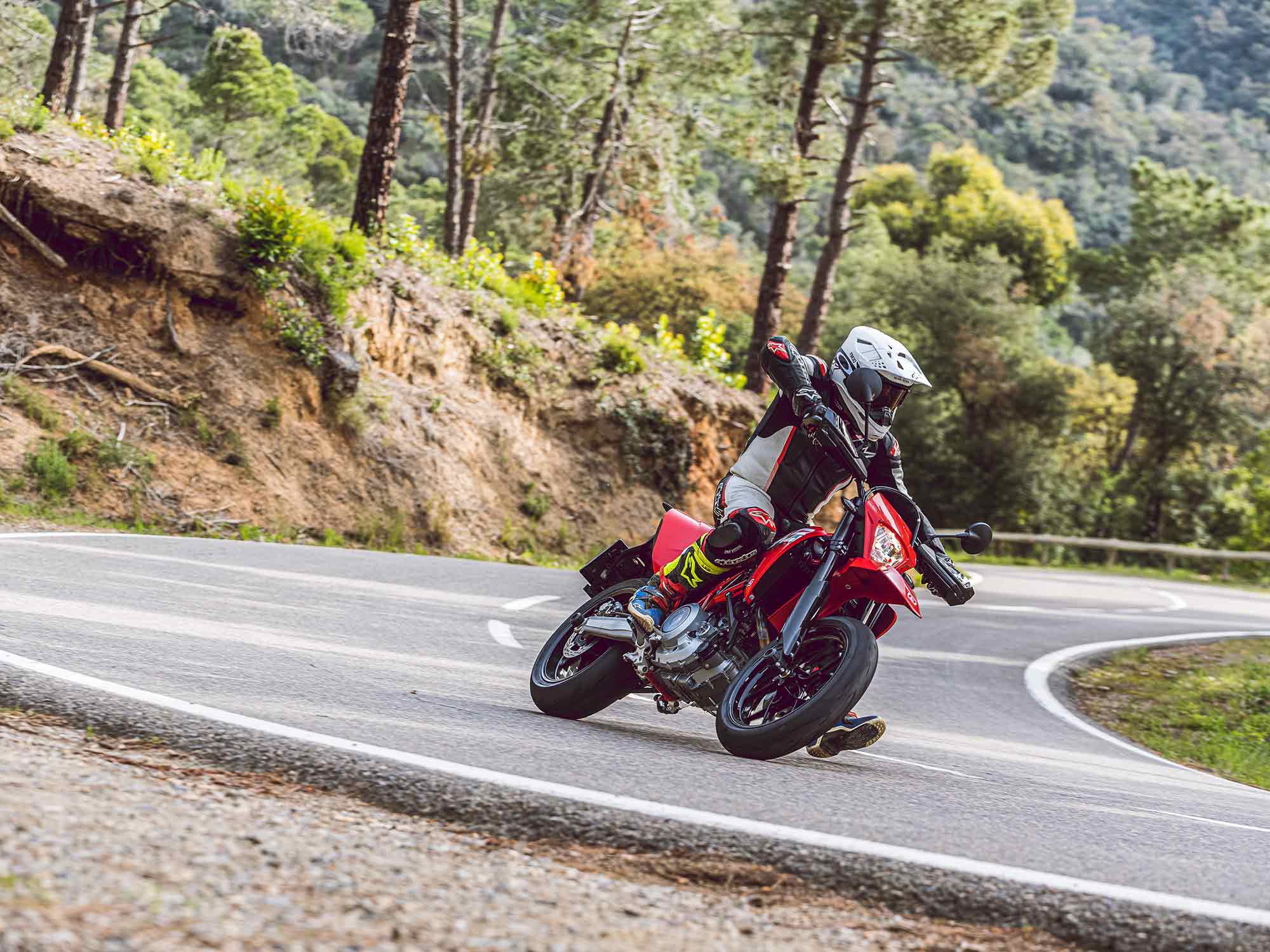
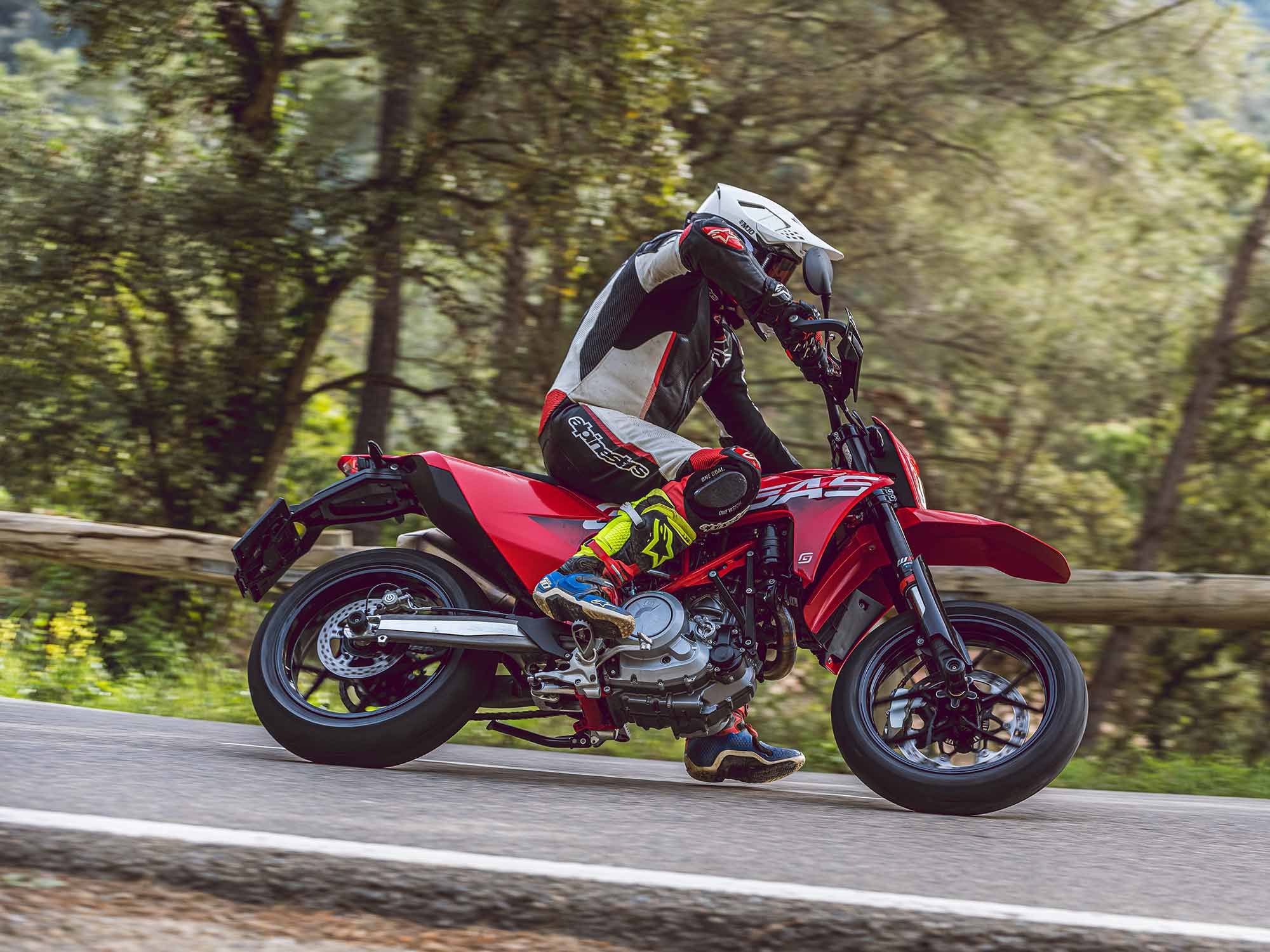
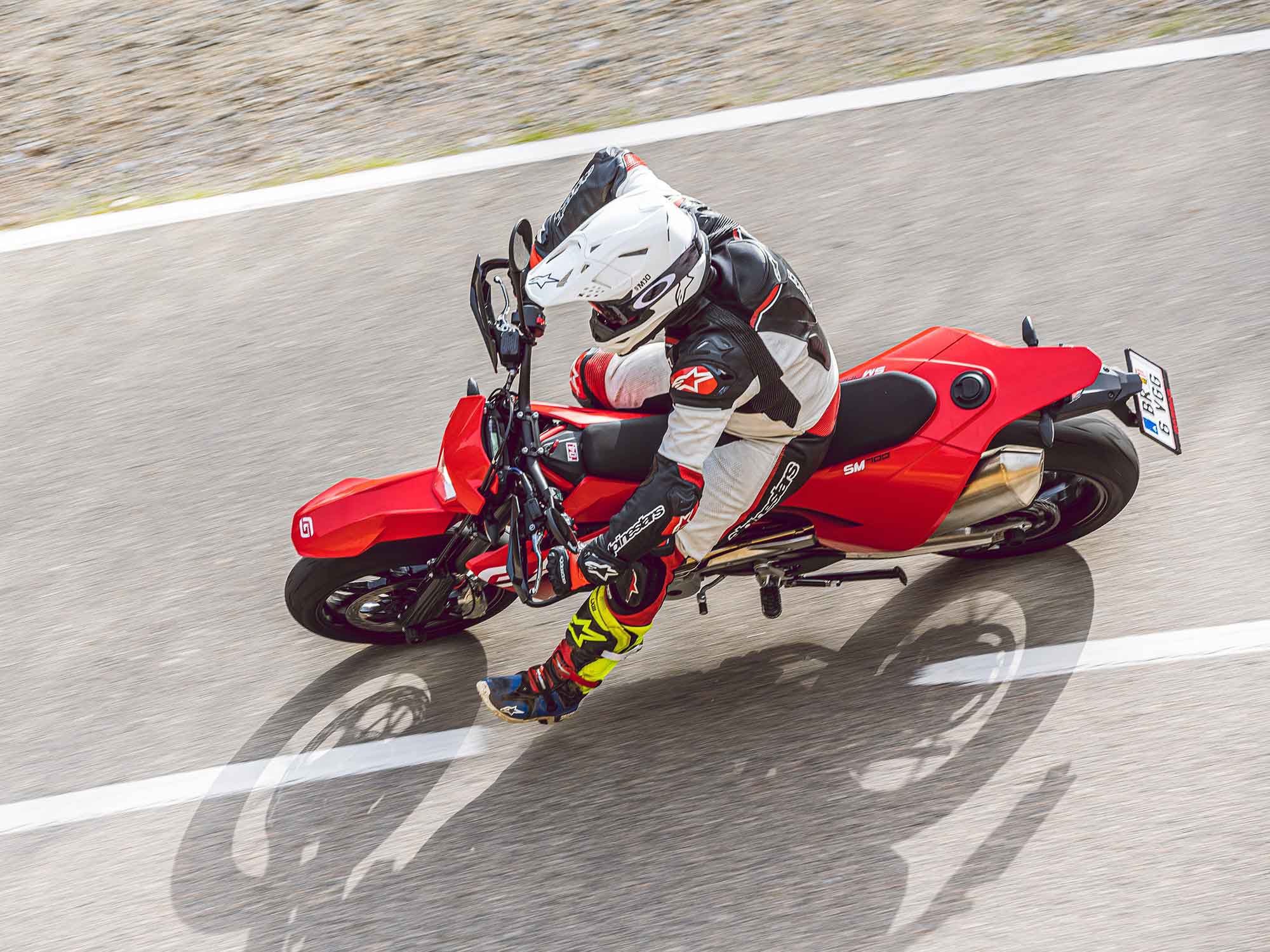
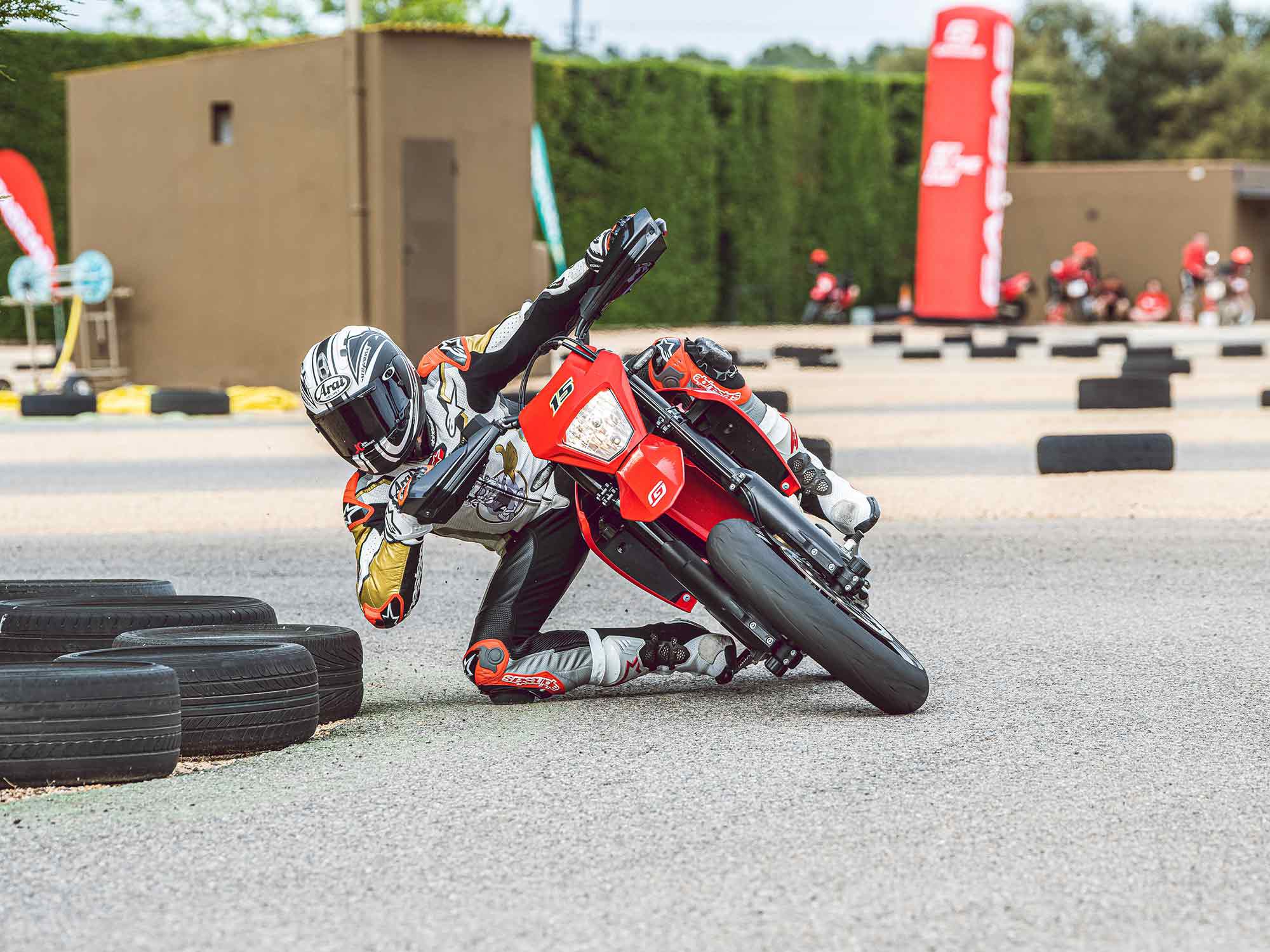
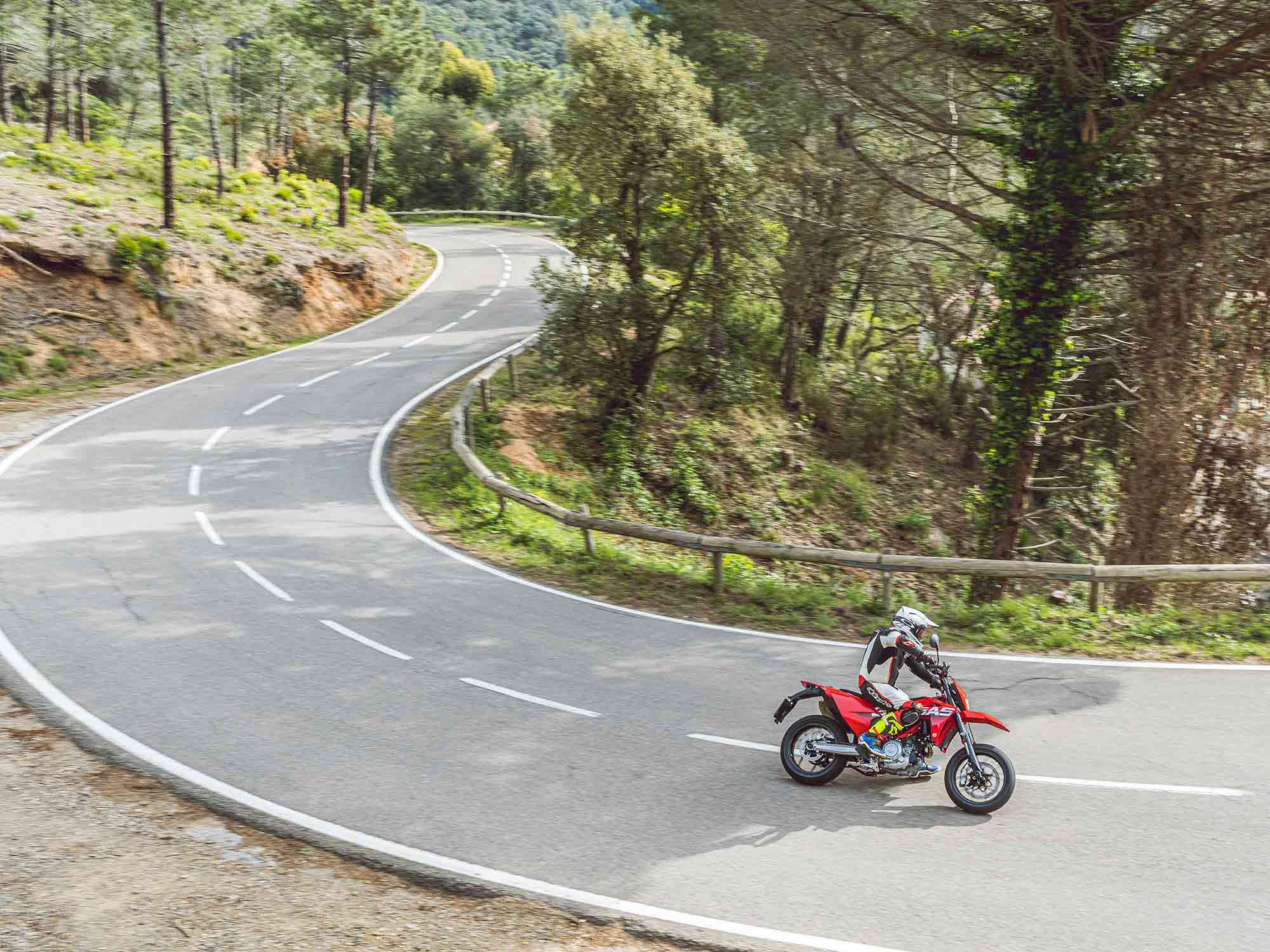
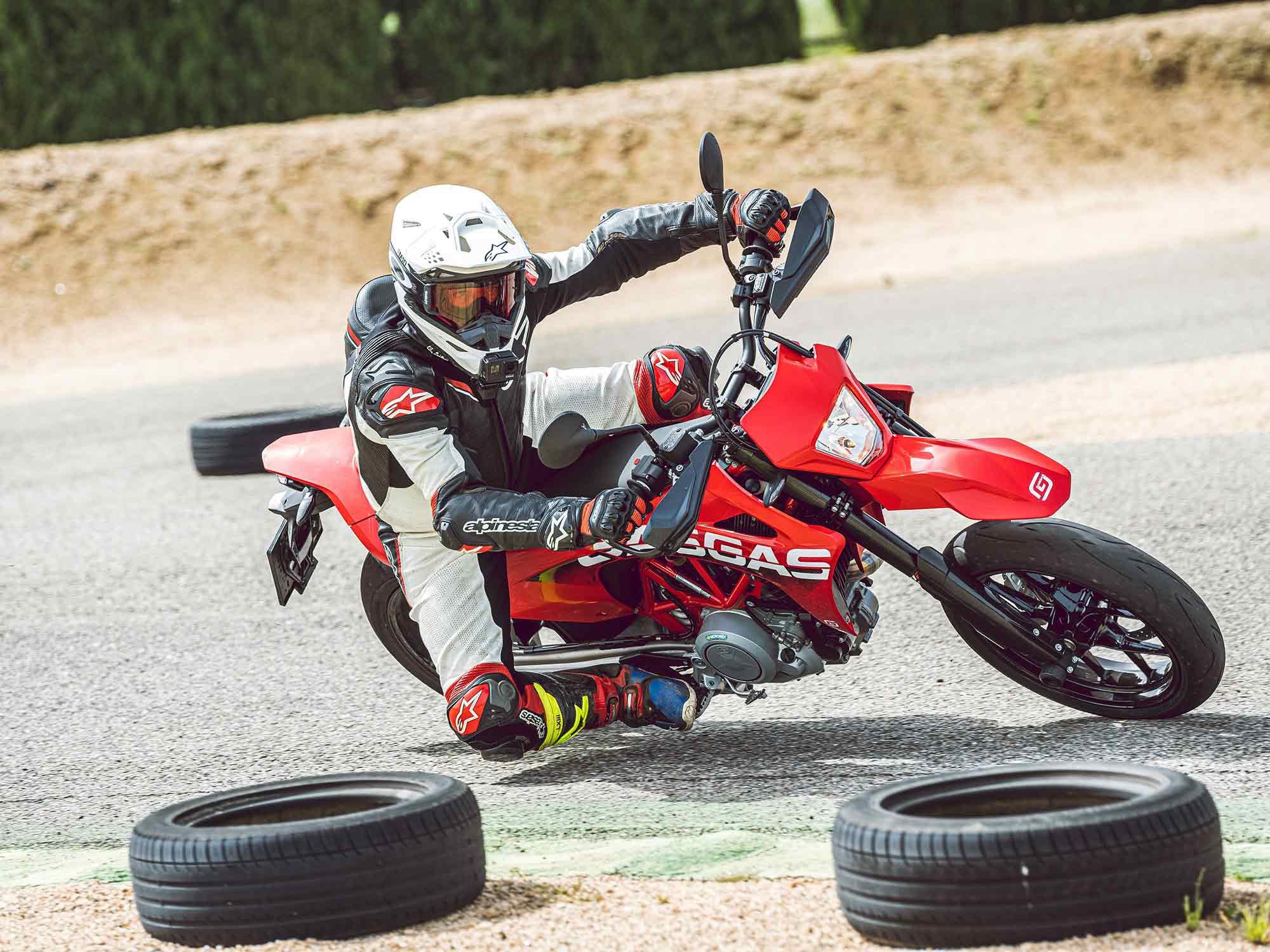
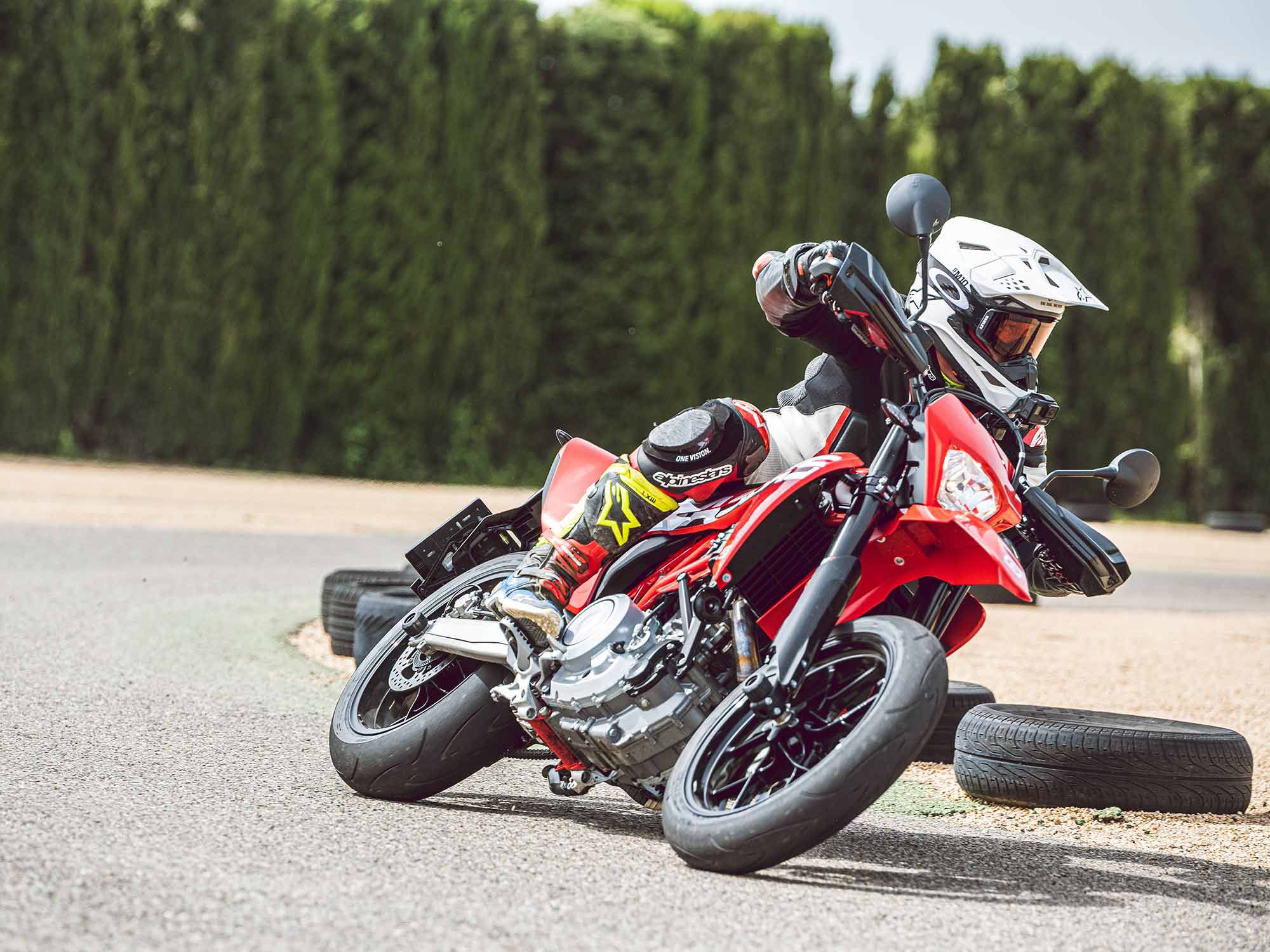
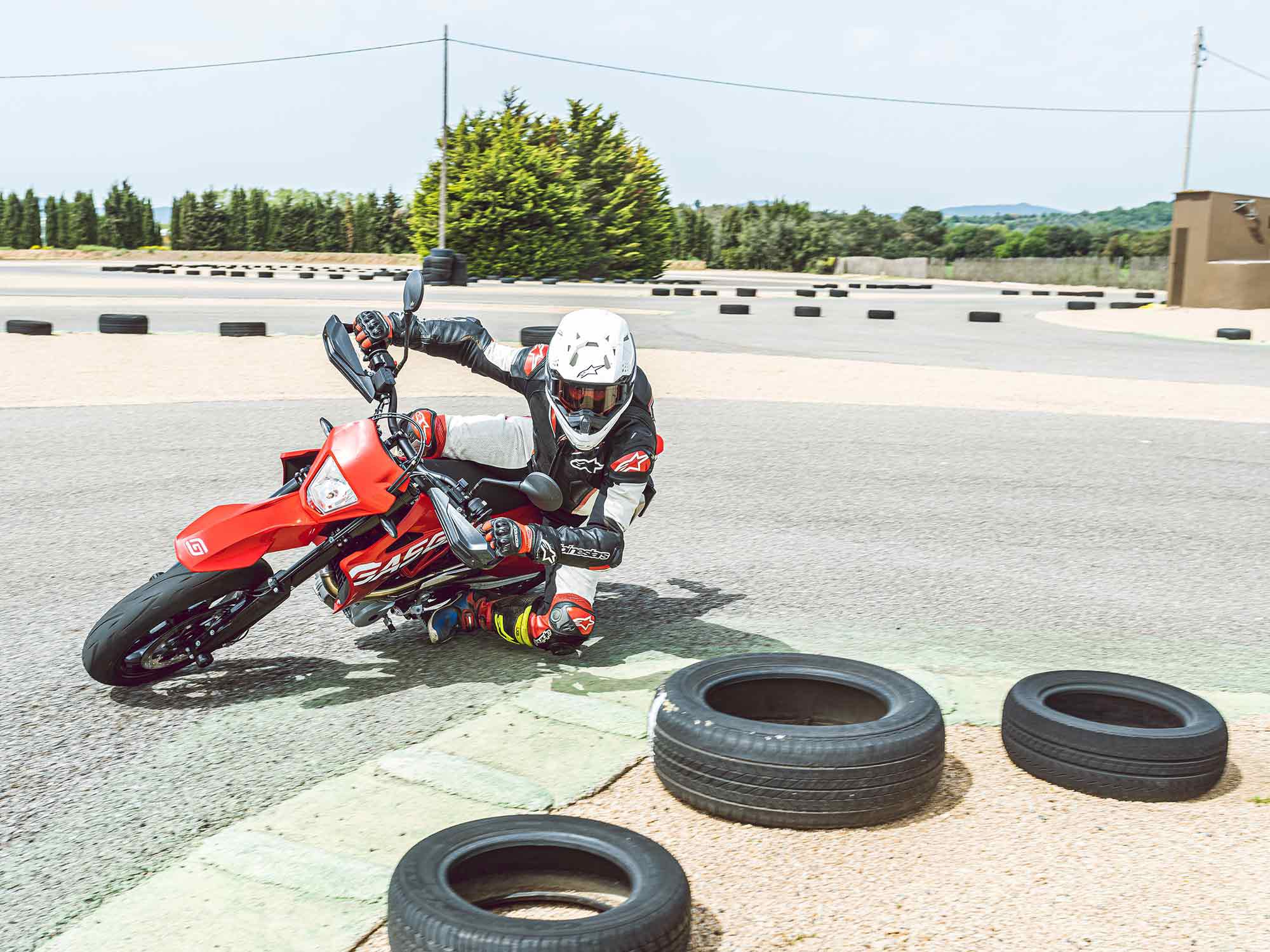
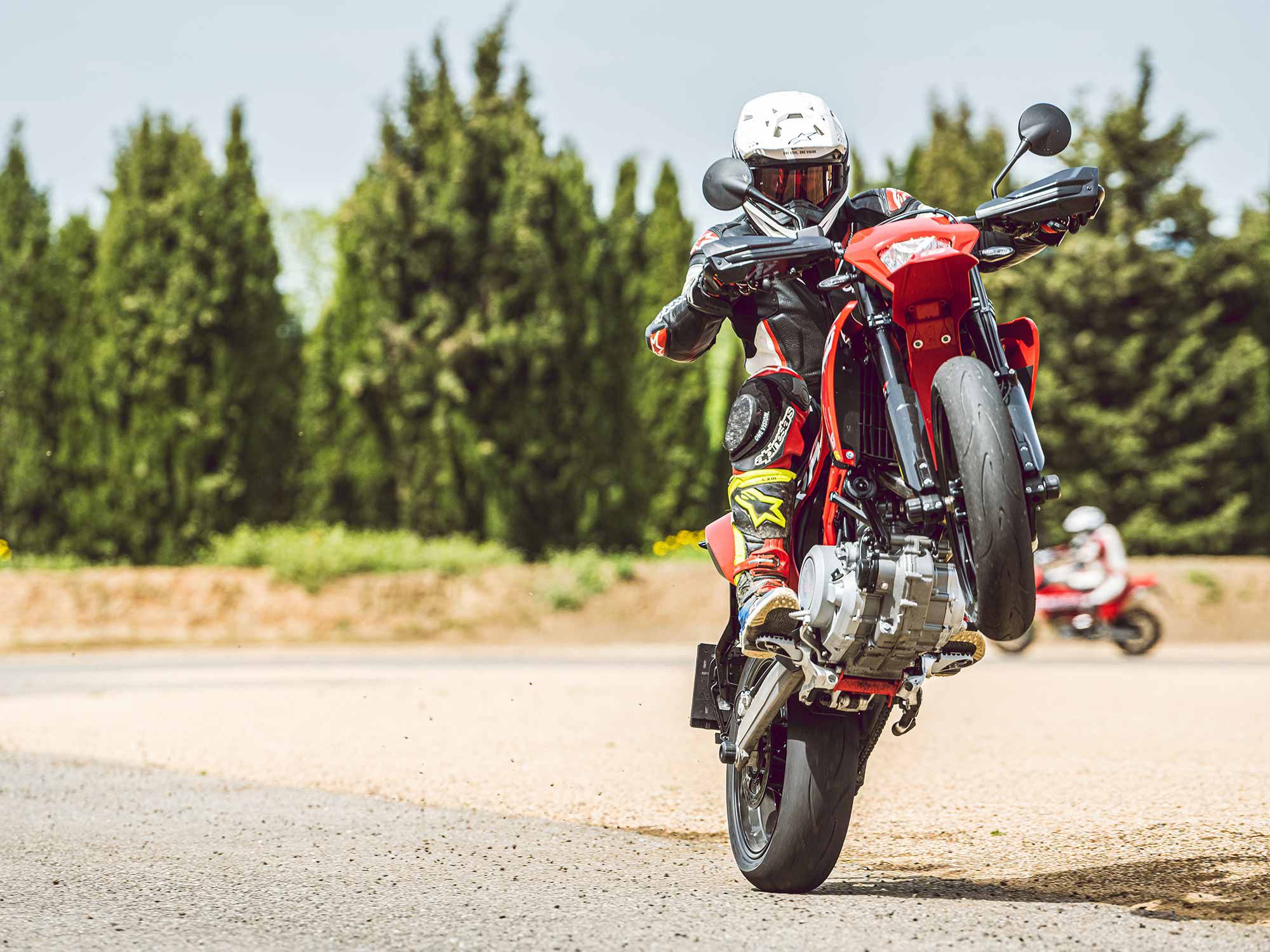
Source: MotorCyclistOnline.com
